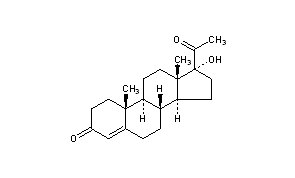The hormone 17-hydroxyprogesterone is a building block for producing the hormone cortisol. Cortisol is produced mainly by the adrenal cortex (the outer part of the two adrenal glands, located above the kidneys). Cortisol is called the "stress hormone" because it's secreted in larger amounts as part of the body's response to physical or emotional stress.
Cortisol levels normally vary throughout the day. They're highest in the morning, just before waking up, and lowest at night.
Some people, however, can't make enough cortisol because they lack an enzyme in the adrenal glands that's needed to make it. They'll have a buildup of 17-hydroxyprogesterone in the blood because it's not being converted to cortisol.
In kids, the most common cause of cortisol deficiency, and consequently high levels of 17-hydroxyprogesterone, is one of the forms of the genetic disorder congenital adrenal hyperplasia (CAH).
CAH can affect both boys and girls. It causes the adrenal glands to make excess androgens (male steroid hormones) and, in some cases, not enough of the hormones that regulate the body's salt balance.
Though treatable, undetected CAH can sometimes lead to more serious symptoms such as dehydration and shock in infants.



 Contact Us
Contact Us







 Hospitals
Hospitals
 Doctors
Doctors
 Diagnostic
Diagnostic
 Pharmacy
Pharmacy
 Health Tips
Health Tips
 Blog
Blog

























Comments